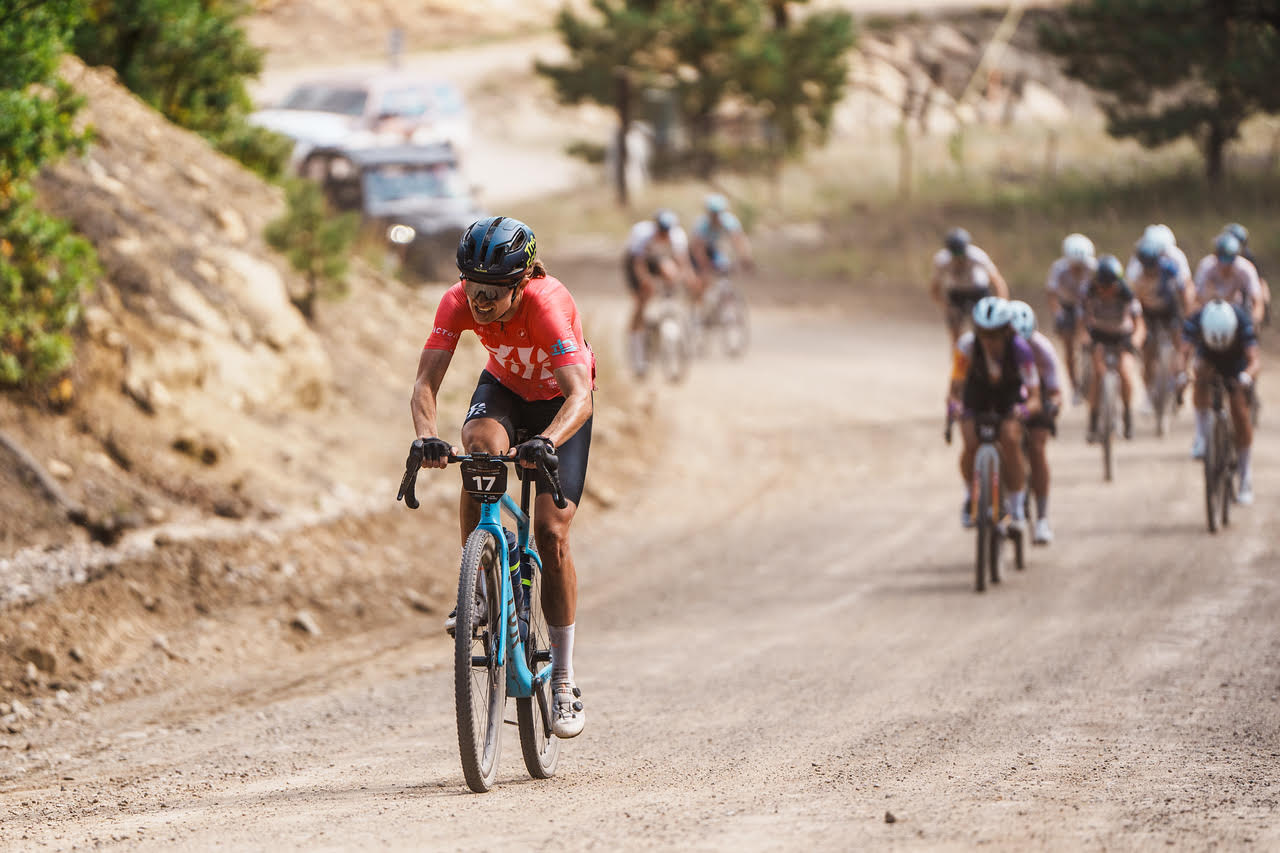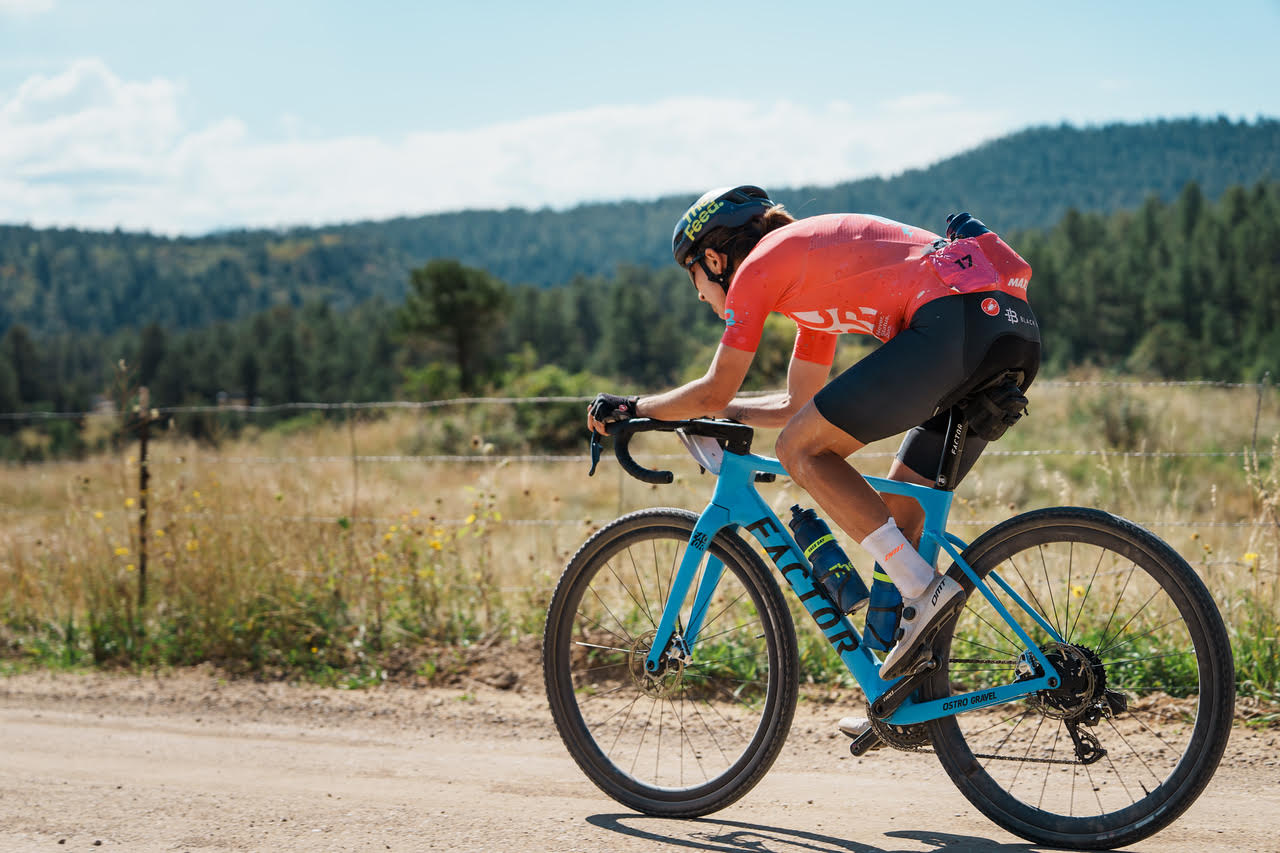
I competed in the first-ever 2022 UCI Gravel World Championships in Veneto, Italy. Back then, I wasn’t racing as a privateer, I was part of a team, which helped ease the logistical burden of racing in Europe.
They handled the essentials – travel planning, bike shipping, and in-race support – so I could focus on what I do best, racing my bike.
Looking back, I wish we could receive similar assistance from the National Federation. It’s tough when you're expected to compete on the world stage, but you don’t have the backing to make it feasible. Albeit lacking funds in an Olympic year, I wish USA Cycling could do more to support athletes, especially those who don’t have teams to handle the logistics.
The racing itself at Worlds was also a different experience. It’s not like the gravel racing I love here in the US, where wide open roads let you ride solo for miles. Instead, the course was tight, with narrow bike paths and constant turns. I’ve seen footage from this year’s course in Belgium, and it’s more of the same, which doesn’t suit my strengths or the style of racing I thrive in.
Why I turned down UCI Gravel Worlds
After taking my third win over the weekend at The Rad Dirt Fest in Trinidad, CO, the fifth and penultimate stop of the Life Time Grand Prix (LTGP), I find myself reflecting on a decision I didn’t make lightly - turning down my selection for the UCI Gravel World Championships. Originally, I thought I could fly to Belgium the day after The Rad, Sunday at noon, to arrive at the Brussels airport the next morning. But when I sat down to map out the logistics, the trip quickly became a nightmare, and ultimately, it didn’t make sense, financially or otherwise.
The hurdles grew overwhelming without support from USA Cycling and limited coordination among the other women selected. I would be forced to navigate this trip essentially solo. No mechanic. Nobody on the ground. Nothing that would allow me to perform at my best. And that’s just the start.
Being an independent athlete means that races need to make financial sense. When I looked at the numbers, UCI Worlds became less appealing. The cost of travel, accommodations, bike shipping, and the additional expenses of managing my logistics in a point-to-point race quickly grew. Without team support, an actual shot at the rainbow jersey seems slim.

Alternatively, the Life Time Grand Prix series offers substantial financial incentives that can sustain my racing career. By achieving max series points at The Rad Dirt Fest, I’ve climbed to 11th in the standings. With one race left, Big Sugar in Bentonville, Arkansas, the top 10 is still within reach, which means a share in a $300,000 prize purse. Last year, I finished second overall at Big Sugar behind this year's Tour de France Femmes winner Kasia Niewiadoma, again snagging maximum series points. A good result at Big Sugar could lead to a big payday. And of course, the 'Gravel Rave' afterward is epic!
Racing as a privateer has taught me a lot about self-reliance as well as the limits of self-reliance. As much as I’ve learned about taking care of my own equipment – between setting up tubeless tyres, waxing chains, using a derailleur alignment tool, booking hotels well in advance, the list goes on. It’s still not my strong suit. Several of my experiences as a privateer – Leadville MTB 100, SBT GRVL – all made me reconsider my readiness to go to Belgium without a dedicated mechanic or support staff. Small issues a team handles with ease can quickly become race-ending without that help. Racing without support feels like playing with fire.
Gravel World Championships, Gravel Worlds and US Gravel
Let's talk about the discrepancy in race length between men and women at UCI Gravel World Championships, which is about 134km (81 miles) for women versus 181km (112.5 miles) for men. I understand the argument that different distances can make the competition more equitable, allowing women to race just as hard and maintain the same intensity as the men over a shorter distance.
However, I believe in the spirit of gravel, where inclusivity and equality are at the core. Gravel is about everyone, regardless of gender, racing the same course under the same conditions. True equality means men and women should race the same distance because that’s the essence of gravel, with everyone competing on equal terms, pushing themselves and each other.
At US Gravel Nationals, both women and men raced 211.4km (131.4 miles). And at the original Gravel Worlds, which remains in Lincoln, Nebraska, the men and women both raced 244.6km (152 miles). That race had over 3,048 metres (10,000 feet) of climbing, and both races had live streaming for equal race coverage.
US Gravel Nationals offered a $40,000 prize purse, a huge incentive for racers. There was a total prize purse of $30,000, shared equally between elite women and men, at the Worlds event in Nebraska.
Rethinking the Gravel Nationals Prize Purse

As much as I love gravel racing in the US, I believe there’s a better way to allocate resources to support American riders internationally. I can’t help but think that the $40,000 that was split evenly among the elite divisions at Nationals could have been spent more strategically. The first-place prize of $10,000 for the top woman, and the same for the top man, is substantial, but in the broader picture, it feels excessive when our National Federation struggles to fund riders at UCI Gravel World Championships.
With these financial struggles in mind, what if, instead of offering such a high payout, the prize for first place was scaled back to $2,000, with the descending prize money adjusted accordingly? That would still offer a great reward for domestic competition while freeing up funds that could be used to support Team USA when we compete in Europe. With that money, USA Cycling could provide riders with a basic level of support - a mechanic, a soigneur, help with transportation, and maybe even a place to stay. It wouldn’t need to be extravagant, just enough to ensure we can perform at our best without bearing the full financial burden.
The Bigger Picture
This decision wasn’t just about one race; it was about the bigger picture. Racing in the US, especially with the Life Time Grand Prix, allows me to continue building my career. Financially, logistically, and competitively, it makes more sense to stay focused on the opportunities here. Gravel is growing rapidly in the US, and I want to be part of that growth, to push myself in events that challenge me while making it sustainable.
I love representing my country and looking forward, I hope it makes more sense logistically and financially to compete at a UCI World Championships. But for now, I will focus on where the support and the competition align with my career goals. Right here, in the good ol’ USA.







